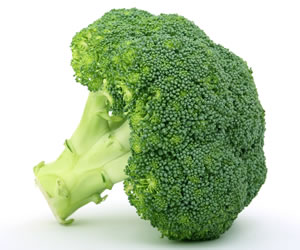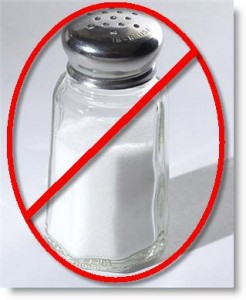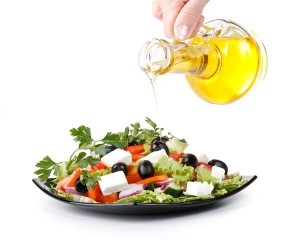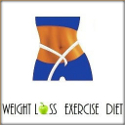-
Women’s Health: Staying Fit After 50
Sunday, April 13th, 2025by Kristin Kirkpatrick, Registered Dietitian
When a woman reaches her fifties (the average age of onset for menopause), her body has to compensate for hormonal, cardiovascular and muscle changes that are now taking place. Many women reach age 50 and discover that the lifestyle that worked so well in their twenties and thirties no longer gets the job done.
Weight gain for women over fifty is common due to to a decrease in muscle mass along with the accumulation of excess fat and a lower resting metabolic rate. Hormonal changes can lead to a range of symptoms and increase the overall risk of heart disease and stroke.
Furthermore, the absorption of certain nutrients may decrease due to a loss of stomach acid. These facts make it clear that a woman’s diet at age fifty needs to change.
A healthy diet for women over 50 should serve to maintain weight, keep your body strong and promote a healthy heart. Here are some diet tips for women over age fifty:
Boost Your Intake of Vitamin D and Calcium
Due to gastric and hormonal changes, Vitamin D levels and calcium absorption drop dramatically around the age of 40. Moreover, research shows that post-menopausal women have an increased risk of osteoporosis due to a lack of estrogen.
Complicating matters is the fact that as you age, your body breaks down more bone than it builds. This puts women over fifty at risk for osteoporosis and bone fractures.
 The good news is that even if you didn’t get adequate calcium before the age of thirty, it’s never too late to add calcium-rich foods to your diet.
The good news is that even if you didn’t get adequate calcium before the age of thirty, it’s never too late to add calcium-rich foods to your diet. There are several delicious sources of calcium that you should make a part of your menu plan, including sardines (a double dose of omega 3 from the fish and calcium from the bones), broccoli, spinach, kale, and low-fat or fat-free milk and yogurt.
In addition to eating these foods, have your physician test your vitamin D levels and provide additional supplementation if needed (remember that Vitamin D is needed to absorb calcium).
Stop Taking Iron Supplements
The average woman experiences menopause around the age of 50, accompanied by the cessation of her menstrual period. After menopause, the need for iron decreases to about 8 milligrams of iron a day.
While the body can’t live without iron, too much iron can be dangerous as well. Iron toxicity can occur because the body doesn’t have a natural way to eliminate iron.
Too much iron can cause heart or liver damage – even death. When it comes to iron supplements, post-menopausal women should only take them when prescribed by a physician. Check your multivitamin label and if it contains iron, make sure to replace it with an iron-free variety.
Reduce Salt Intake Dramatically
The older a woman gets, the more likely she is to develop hypertension (high blood pressure). This is because the blood vessels become less elastic as we age. High blood pressure puts women at risk for heart attack, stroke, heart failure, kidney disease and possible early death.
 More than 70% of the salt in the American diet comes from processed foods. It is vital that you decrease or even eliminate your consumption of processed foods (snack chips, frozen dinners, canned soup, etc.). You should have a target of 1500 milligrams or less of sodium per day (about ½ teaspoon).
More than 70% of the salt in the American diet comes from processed foods. It is vital that you decrease or even eliminate your consumption of processed foods (snack chips, frozen dinners, canned soup, etc.). You should have a target of 1500 milligrams or less of sodium per day (about ½ teaspoon).As an alternative, you can start adding delicious and flavorful herbs in place of salt when cooking at home. What’s more, these herbs will provide some great anti-cancer benefits.
Doing away with processed foods also means eating more healthy foods like whole grains, fruits and vegetables. Doing so will help increase your fiber consumption.
Fiber helps you feel fuller longer, meaning you’ll eat less throughout the day. As a result, you are more likely to maintain your weight (rather than gaining).
Start Taking Vitamin B-12 Supplements
Vitamin B-12 supports healthy nerve and blood cells. It also supports the production of DNA. B-12 binds itself to a protein in food and must be released through pepsin digestion in the stomach.
As we get older, our stomach acid decreases. This makes it more difficult to absorb certain nutrients, including Vitamin B-12.
Vitamin B-12 is mainly found in meat and fish, and those persons who consume a strictly vegan diet are encouraged to take B-12 supplements. Seniors are also at a greater risk for B-12 deficiency.
Although symptoms of B-12 deficiency can take years to develop – including abnormal neurological and psychiatric symptoms – they can be avoided by adding B-12 supplements in either pill or shot form.
Eat the Greek Way!
As a woman ages, her blood vessels become less elastic and total peripheral resistance increases. This puts a woman in menopause at an increased risk of heart disease. But fortunately, there is a diet available to help decrease this risk.
When researchers examined the populations around the world with the most individuals over the age of 100, they discovered that these individuals shared a few common themes.
 The most common thing these populations shared was their consumption of a Mediterranean diet.
The most common thing these populations shared was their consumption of a Mediterranean diet. A 2000 study published in the British Journal of Nutrition found that the traditional Mediterranean diet (which includes liberal amounts of fruits, vegetables, whole grains, moderate wine consumption and olive oil) was associated with a longer life span.
Furthermore, a 2004 study in the European Journal of Cancer Prevention discovered that a Mediterranean diet was linked to lower risks of heart disease and cancer. It’s clear that adapting your diet to match that of the Greeks is a very healthy thing to do!
(published April 19, 2012)
 Kristin Kirkpatrick is a registered dietitian and wellness manager for the Cleveland Clinic Wellness Institute. She is a regular contributor to the “Doctor Oz Show” and provides expert opinions for several major magazines as well as media and web outlets. Kristin has been helping individuals reach their personal health goals for over 12 years and her specialties include weight management, nutritional genomics, dieting on a budget and community-worksite wellness. For more information about Kristin, visit www.clevelandclinic.org/wellness.
Kristin Kirkpatrick is a registered dietitian and wellness manager for the Cleveland Clinic Wellness Institute. She is a regular contributor to the “Doctor Oz Show” and provides expert opinions for several major magazines as well as media and web outlets. Kristin has been helping individuals reach their personal health goals for over 12 years and her specialties include weight management, nutritional genomics, dieting on a budget and community-worksite wellness. For more information about Kristin, visit www.clevelandclinic.org/wellness.


